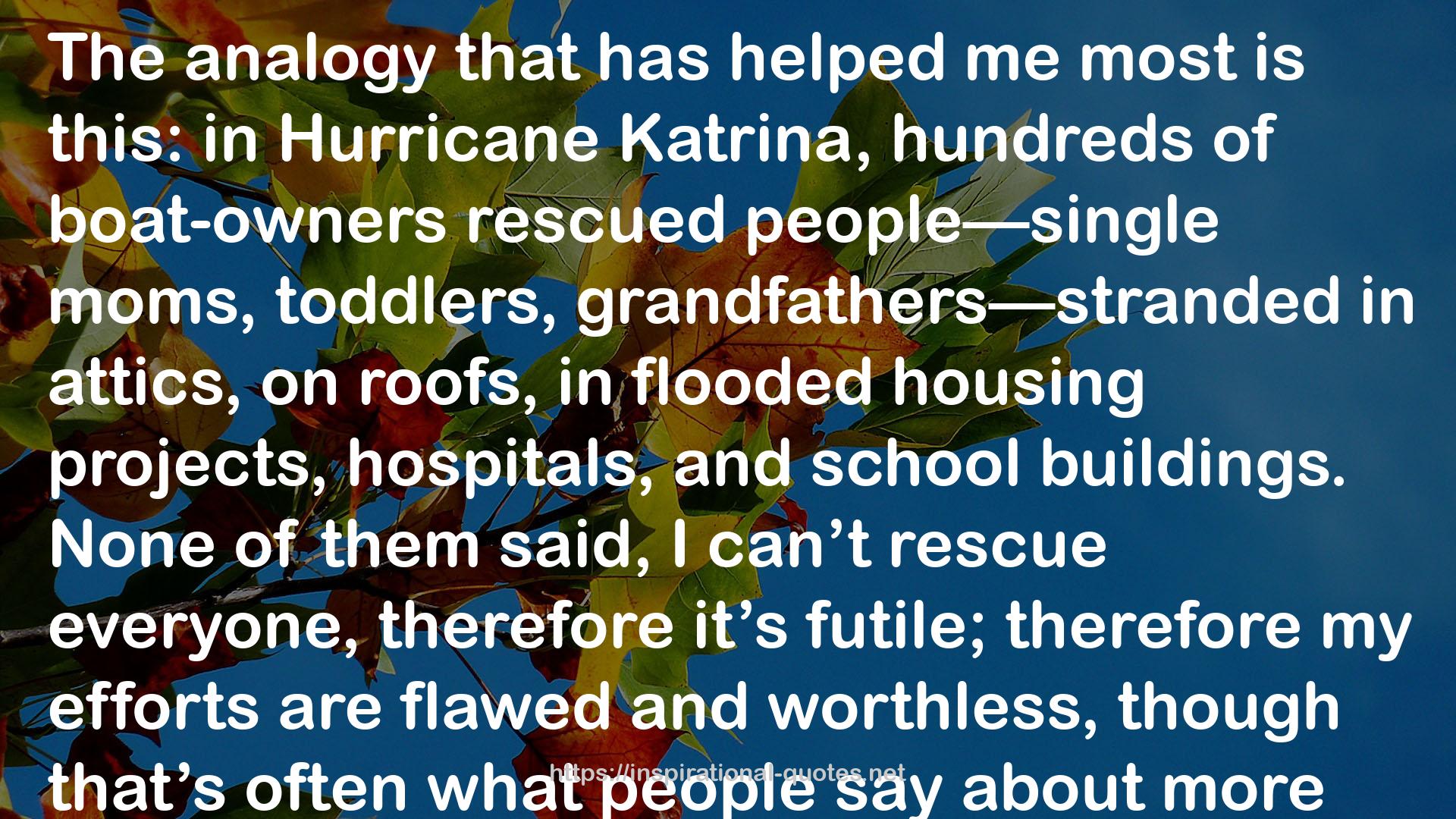" The analogy that has helped me most is this: in Hurricane Katrina, hundreds of boat-owners rescued people—single moms, toddlers, grandfathers—stranded in attics, on roofs, in flooded housing projects, hospitals, and school buildings. None of them said, I can’t rescue everyone, therefore it’s futile; therefore my efforts are flawed and worthless, though that’s often what people say about more abstract issues in which, nevertheless, lives, places, cultures, species, rights are at stake. They went out there in fishing boats and rowboats and pirogues and all kinds of small craft, some driving from as far as Texas and eluding the authorities to get in, others refugees themselves working within the city. There was bumper-to-bumper boat-trailer traffic—the celebrated Cajun Navy—going toward the city the day after the levees broke. None of those people said, I can’t rescue them all. All of them said, I can rescue someone, and that’s work so meaningful and important I will risk my life and defy the authorities to do it. And they did. Of course, working for systemic change also matters—the kind of change that might prevent calamities by addressing the climate or the infrastructure or the environmental and economic injustice that put some people in harm’s way in New Orleans in the first place. "
― Rebecca Solnit , Hope in the Dark
